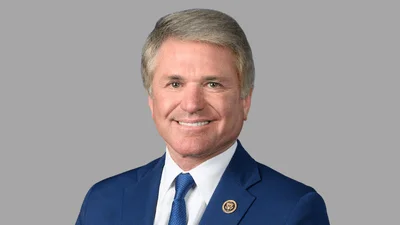WASHINGTON, D.C. - A letter today from the Congressional Budget Office (CBO) affirms that H.R. 3200, America`s Affordable Health Choices Act, would significantly reduce prescription drug costs for seniors under the Medicare prescription drug (Part D) program. CBO finds that there will be a substantial overall decrease in out-of-pocket spending due to closing the "donut hole" coverage gap.
SEE FACT SHEET ON H.R. 3200 EFFECT ON DRUG PRICES HERE: https://www.stark.house.gov/images/stories/111/legislation/AAHCA/hr3200_partd.pdf
“Health care reform will reduce Medicare Part D costs for seniors by eliminating the immense gap in coverage, which currently forces seniors to pay premiums but get nothing in return," said Chairman Charles B. Rangel (D-NY).
"H.R. 3200 will eliminate the ‘donut hole’ gap in drug coverage that has plagued seniors, dramatically improving the Part D benefit and cutting seniors’ drug costs," said Energy and Commerce Chairman Henry A. Waxman (D-CA).
"One of the key focuses of our health insurance reforms is ensuring that seniors have access to stronger, higher quality, and more cost-effective Medicare coverage," said U.S. Rep. George Miller (D-CA), the Chairman of the House Education and Labor Committee. "This CBO score confirms that our reforms will make prescription drug costs more affordable for seniors -- and that drug companies can no longer reap enormous profits at their expense."
The CBO letter was sent to House Ways and Means Committee Republicans in response to questions about the effect of H.R. 3200 on Part D premiums. The letter provided this context:
"In return for those higher premiums, enrollees would receive greater protection against incurring high drug costs. As a result, beneficiaries’ spending on prescription drugs apart from the premiums would decrease, on average. That reduction in cost sharing would outweigh the increase in premiums, again on average, because of the subsidies provided by the federal government-so beneficiaries’ total prescription drug spending would fall on average."
Separate analysis by the CMS Office of Actuary confirms that the premium changes are driven by the elimination of the so-called "donut hole." This change improves the Medicare drug benefit so seniors will no longer lose drug coverage when they need it most.
For example, for a senior with $12,000 in annual drug costs in 2019, total out-of-pocket spending would decrease by over $5,000 annually. H.R. 3200 would also save taxpayers tens of billions of dollars by reducing overall Part D drug costs and eliminating the windfall price increases received by drug manufacturers when dual eligible beneficiaries were switched from Medicaid drug coverage to Medicare Part D.
A full version of the CBO letter is available at: https://www.cbo.gov/doc.cfm?index=10543&type=1








